Контрольні роботи для учнів 5 класу загальноосвітніх навчальних закладів до підручника О.Карпюк
Як відомо, головна мета навчання іноземної мови в загальноосвітніх навчальних закладах полягає у формуванні в учнів комунікативної компетенції, базою для якої є комунікативні вміння, сформовані на основі мовних знань і навичок. Розвиток комунікативної компетенції залежить від соціокультурних і соціолінгвістичних знань, умінь і навичок, які забезпечують входження особистості в інший соціум і сприяють їх соціалізації в новому для неї суспільстві.


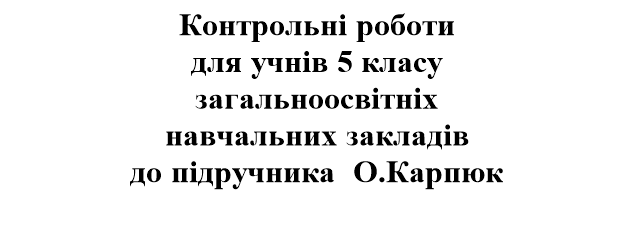
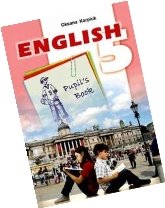
Автор методичної розробки:
учитель англійської мови
Грем’яцької ЗОШ І-ІІІ ст.
Івченко-Чехолка Ю.В.

![]()
Від автора
Як відомо, головна мета навчання іноземної мови в загальноосвітніх навчальних закладах полягає у формуванні в учнів комунікативної компетенції, базою для якої є комунікативні вміння, сформовані на основі мовних знань і навичок. Розвиток комунікативної компетенції залежить від соціокультурних і соціолінгвістичних знань, умінь і навичок, які забезпечують входження особистості в інший соціум і сприяють їх соціалізації в новому для неї суспільстві.
За умов відсутності іншомовного оточення, уроки англійської мови є одним із найважливіших напрямків оволодіння іноземною мовою. На уроках учні можуть отримувати необхідну інформацію, зрозуміти важливість вивчення іноземної мови, та посилити інтерес до її вивчення. Дуже важливо із самого початку навчити учнів бачити свій результат роботи.
Контрольні роботи підготовлені відповідно до навчальної програми 5 класу середньої загальноосвітньої школи, з урахуванням віку та рівня їх мовної компетенції. Вправи створено на основі методичної літератури і власного досвіду викладання у школі й мають на меті закріпити і перевірити:
1) знання певної лексики (лексичні вправи);
2) знання граматики;
3)розуміння тексту.
Виконуючи завдання учні матимуть змогу поглибити знання і набути нових вмінь і навичок.
Contest
Unit 1 Time for School
Test 1…………………………………………………………………………………….5
Test 2…………………………………………………………………………………….6
Unit 2 Time for Leisure
Test 1…………………………………………………………………………………….7
Test 2……………………………………………………………………………...........8
Unit 3 Time for Home
Test 1…………………………………………………………………………………….9
Test 2…………………………………………………………………………………...10
Unit 4 Time for Outdoors
Test 1…………………………………………………………………………………...11
Test 2…………………………………………………………………………………...12
Unit 5 Time for Discovery
Test 1…………………………………………………………………………………13
Test 2…………………………………………………………………………………14
Progress test for the first term
Listening comprehension………………………………………………………………15
Reading comprehension………………………………………………………………16
Writing comprehension………………………………………………………………..17
Progress test for the second term
Listening comprehension………………………………………………………………18
Reading comprehension………………………………………………………………19
Writing comprehension………………………………………………………………...20
Unit 1 Time for School
Test 1
- Put the verb “to be” in the correct form.
- They ____ my friends.
- She ____ our teacher.
- You ____ a good student.
- I _____ ten years old.
- We ____ Ukrainians.
- It _____ my cat.
- Choose the correct pronoun.
(her, him, them, us, it, me)
- I have got a dog. Look at ___.
- This boy is very strange. Do you know ___.
- My aunt lives in Kyiv. I like to visit ___.
- These are my friends. I always play with ___.
- I can’t understand this. Can you help ____.
- We are here. Look at ___.
- Match the questions with the answers.
- What are you? A. Yes, I am.
- How old are you? B. Maths
- Where are you from? C. Ukraine
- What form are you in? D. I’m a pupil
- Are you interested in music? E. Ten
- What are you good at? F. In the 5th form
- Write the time.
1. 6:15 4. 5:45
2. 3:30 5. 9:40
3. 9:20 6. 7:50
Unit 1 Time for School
Test 2
- Write in words.
13-
42-
86-
99-
125-
2007-
- Write the degrees of comparison of the adjectives.
strong-
tall-
popular-
Iiteresting-
easy-
bad-
- Use the comparative forms of the adjectives to complete the sentences.
( the best, easier, the hottest, more comfortable, bigger, more comfortable)
- Summer is ___ season.
- A city is ____ than a town.
- Sport is ____thing for our health.
- Armchairs are ____ than chairs.
- The Dnipro is ____ river in Ukraine.
- English is ____ for me than Maths.
- Answer the questions.
- What form are you in?
- What subject are you interested in?
- What is your favorite day in a week?
- Do you like to study English? Why?
- What is the most difficult subject for you?
- Can you write your timetable for Monday?
Unit 2 Time for Leisure
Test 1
I. Complete the sentences with “can” or “can’t”
1. He is a very good sportsman. He ____ run very fast.
2. I’d like to drive a car, but I ___.
3. She reads very quickly. She ___ read a book in a short time.
4. They don’t know English. They ____ understand Englishmen.
5. A cow ___ climb trees.
6. My mother ____ make cakes. Her cakes are very tasty.
II. Write questions and true short answers.
- you / write with your left hand?
- your father/ play football?
- you/ speak English?
- your mother/ play the piano?
- you/ swim?
- You/ jump high?
III. Put the verbs in brackets in the correct form.
- We (live) in the village.
- He (work) at school.
- I (not speak) French.
- She ( not drive) to work.
- You (study) English?
- Your friend (play) football?
IV. Fill in the following words.
(best, clever, have got, a lot of, songs, form, friendly, fond of, the guitar)
Hello! I’m a pupil of the fifth ___. I ___many friends. My ____ friend is Ihor. He is very ____ and ___ . He is ___ music .He has got ____CDs with popular songs. He can play ___. I like to listen his ____ very much.
Unit 2 Time for Leisure
Test 2
- Put the adverbs into the correct place.
- He is ready for the lessons. (always)
- We visit museums at the weekends. (usually)
- He is late for classes. (never)
- My brother has a shower in the morning.(sometimes)
- I stay at school until 6 p.m. (rarely)
- They talk about their holidays (often)
- Make up sentences with (like +….ing) or (don’t like + …ing) as in the example :
- cook dinner >>> I like cooking dinner
- have breakfast in the morning
- do my lessons
- play computer games
- go to bed late
- get up early
- clean my room
- Complete the sentences.
- I am interested in …… .
- My mother is fond of ….. .
- At the weekends I don’t like to …. .
- My father is good at …. .
- I am not very good at …. .
- My best friend is good at …. .
- Put the words into the letter.
( show, you, is, presents, tell, mobile phone)
Dear Taras.
How are ____ . I’d like to ____ you about my birthday party. It ___ really
fun. I’ve got many _____ from my friends and parents. My best present is
a new _____ . I can ___ it tomorrow.
See you soon .
Your Mark.
Unit 3 Time for Home
Test 1
- Match two columns.
1. My mother’s son is my a) father
2. My aunt’s daughter is my b) brother
3. My granny has a son, he is my c) mother
4. My mother’s father is my d) grandfather
5. My father’s wife is my e) sister
6. My mother’s daughter is my f) cousin
- Fill in “some” or “any”
- There are ____ apples in the tree.
- Is there ____ juice in the glass?
- There aren’t _____ eggs in the fridge.
- There is _____ snow on the ground.
- There isn’t _____bread on the table.
- Are there _____tomatoes in the basket?
- Complete the questions with mach or many
- How ____time do you spend in front of TV?
- How ____ milk does she need for a cake?
- How ____ films do you watch a week?
- How ____ bread do you need for dinner?
- How ____books are there on the table?
- How ____apples do you eat a day?
- Change sentences into the Present Continuous Tense using the words in brackets
- We do our test every month (now).
- She always helps her mother (at this moment).
- I don’t dance at the lessons (now).
- They regularly have English lessons (now).
- He doesn’t listen to music in the morning (at this moment).
- My cat always climbs a tree (Look).
Unit 3 Time for Home
Test 2
- Complete the sentence with “at”, “in”, “on”.
- We always visit our grandparents____ Christmas.
- I sometimes watch TV ____ the morning.
- ____ Christmas Eve people gather together and have a big meal.
- I don’t go to school ___ weekends.
- Our family usually goes to the seaside ___ summer.
- My mother doesn’t work ___ Sundays.
- Use “must” or “mustn’t” to complete the sentences.
- You ___ come to school in time.
- You___ wear school uniform.
- You___ cry in the classroom.
- You___ answer the teacher’s question.
- You___ copy from your classmates.
- You ___ run along the corridor.
- Complete the questions and give short answers.
- ___ the weather cold yesterday? ______.
- ___ you at school at school last week? _____.
- ___ you good at reading when you were five? ____.
- ___ your father at home yesterday in the evening? _____.
- ___ your friends at the lesson yesterday?_____.
- ___ your family in Kyiv last month? _____.
- Open the brackets in Past Indefinite Tense (affirmative or negative).
- I (go) to school by bus yesterday, because the weather (not be) good.
- I (get) a good mark in English but I (not get) a good mark in Math.
- It (be) very snowy yesterday but we (not play) snowballs.
- There (be) two letters in the postbox but they (not be) for me.
- My granny (visit) us yesterday but I (not be) at home at that time.
- We (have) six lessons last Monday but ( (not be) at the last.
Unit 4 Time for Outdoors
Test 1
- Match the parts of the sentences.
1. It’s often foggy a) in the day-time
2. It usually rains b) in autumn
3. The weather is frosty c) in summer
4. The sun is shining brightly e) in spring
5. It is hot d) in the morning
6. It’s often chilly f) in winter
- Open brackets using Present Continuous Tense.
It is winter now. The weather is fine. It (snow) now. It is not very cold. The sun (shine), the wind (not blow). My friends and I are in the park now. Mary and I (make) snowman. Ann (skate). Boys (play) snowballs. Everything is OK.
- Put the verbs into the correct forms ( Present Indefinite, Present Continuous, Past Indefinite)
- I (write ) a test at the moment.
- Listen. Somebody (cry).
- My mum always (help) me with my homework.
- Yesterday my granny (cook) a tasty cake.
- They (go) to the sea every summer.
- We (not go) to the mountains last winter.
- Answer the questions.
- What weather do you like?
- Is it warm or cold today?
- What colour is the sky?
- Is it snowing at the moment?
- Is it slippery in the street?
- Do you like today’s weather?
Unit 4 Time for Outdoors
Test 2
- Match two columns
- When the weather is hot we can a) go for a walk
- In the mountains in winter we can b) sit near the fire and read books
- When the weather is rainy we can c) swim and sunbathe
- When we are in the forest we can d) watch TV or play computer
- When it is frosty we can e) gather mushrooms or pick up flowers
- When we have free time we can f) ski and sledge
- Put the propositions of the place in the correct place
(at, at, at the, in, in the, in the)
- We are ___ classroom now.
- I like to watch films ____ cinema.
- We live ___ village.
- My father is not ___ home now.
- When I am not well I always stay ____bed.
- I was ___ school yesterday
- Complete the sentences with questions words
(Whose, Why, Which, What, When, Where).
- ____ street do you live in?
- ____ were you late for the concert?
- ____ were you born?
- ____ did you visit your granny for the last time.
- ____ copy- book is this?
- ____ one is yours, black or red?
- Answer the questions.
What do you wear --
- when the weather is hot?
- when the weather is rainy?
- when the weather is frosty?
- when the weather is chilly?
- when the weather is sunny?
- when you go to school?
Unit 5 Time for Discovery
Test 1
- Complete the text with the missing words.(busy, different, buildings, big, town, weekends)
My grandparents live in _____. It is very ____ and ____.We can see a lot of high and beautiful ____ there. There are many interesting sights in their town. At _____ people go to the park, cinemas, theatres, museums and cafes. There are many _____shops in town. People who like shopping can spend all day going from shop to shop.
- Match two halves of the sentences.
- Pupils study a) in a shop
- We can borrow books from b) at school
- We can have lunch or dinner c) to hospital
- People can buy food d) the library
- When you are sick you go e) in a circus
- There are many animals and clowns f) in a café or a restaurant
- Put the words in the correct order to make sentences.
- have, my, I, lessons, done, all, already.
- the article, she, read, yet, has, not.
- seen, have, you, film, already, this, ?.
- come, yet, they, have not.
- she, been, ever, to, Kyiv, has, ?.
- we, just, at the cinema, have, him, seen.
- Open the brackets. Use Present Perfect Tense.
- I (get) a good mark today.
- She (make) this dress herself. It is very beautiful.
- We (not hear) the news yet.
- She never (be) to the theatre.
- You already (pass) the exam?
- He ever (write) letters?
Unit 5 Time for Discovery
Test 2
- Unscramble the words (buildings).
- ketmar
- ciusrc
- nemaci
- pislatho
- chhurc
- retehat
- Match the parts of the word combinations.
- to make a) the beauty of nature
- to gather b) time at the seaside
- to spend c) new friends
- to enjoy d) the birds
- to watch e) interesting places
- to visit f) mushrooms
- Put the words into the correct tense.
- I (visit) my relatives last month.
- My sister (leave) school this year.
- The rain (stop) already.
- We (have) an English lesson yesterday.
- They (do) just this exercise.
- He (not clean) the room yet.
- Make up questions in the Present Perfect and answer them.
- to meet / the President of our country
- to understand / the rule
- to translate / the article
- to buy / a new dress
- to be / at school today
- to see / the Buckingham palace
Progress test for the first term
Listening comprehension
Hello! My name is Bohdan. I am in the 5-th form. I’ve got a sister. Her name is Olha. She is a pupil of the 7-th form. Olha is very pretty. She is tall and slim. She has got large blue eyes and brown wavy hair. Everybody likes her.
Olha is fond of flowers, music and books. She plays the piano. She is very polite and helpful. I am not interested in flowers. I am keen on cars, horses and dogs.
Olha likes English very much and she knows it very well. She is good at reading English books, magazines and newspapers. She always gets good marks in English.
I also study English but I am not as good at it as my sister is. My sister and I always do our homework together. We learn new words, read texts and do exercises. We sometimes speak English at home. We speak about our school and lessons, about books and films.
I. Say if the sentences are true or false.
- Bohdan has got two sisters.
- His sister does not go to school.
- Olha has got blue eyes and her hair is brown.
- Nobody likes her.
- Olha likes music and she can play the guitar.
- Bohdan likes cars, horses and dogs.
- Olha is not very good at English.
- Bohdan is better at English than his sister.
- They always do their homework together.
- Children sometimes speak English at home.
II. Answer the questions.
- Who has got a sister?
- Who is in the 7-th form?
- Is Olha tall or short?
- Does anybody like her?
- What instrument does Olha play?
- What is Bohdan keen on?
- Is Olha good at English?
- What marks does Olha usually get in English?
- How often do Olha and Bohdan do their homework together?
- Do children speak about their school and lessons?
Progress test for the first term
Reading comprehension
Hello, our names are Kate and Tom. We are British. We live in London. What do we usually have for breakfast?
Well, we usually have bread and butter, jam, cheese, eggs and bacon. Sometimes we have cereal with milk. At the weekends we have a glass of milk with a cake. Our parents like to drink white coffee ( it’s coffee with milk). We also like juice, apple juice is the best. My sister Kate prefers bread and butter, with cheese and strawberry jam. As for me I like boiled eggs and bacon. Most of all I like marmalade.
- True or false. Correct the false sentences.
- Tom and Kate live in Britain.
- They never have breakfast.
- They have cereal with honey.
- Children drink coffee at the weekend.
- They don’t like bread and butter.
- Tom and Kate like apple juice the most.
- Their parents like to drink coffee with milk.
- Kate doesn’t like strawberry jam.
- Tom likes boiled eggs with salami.
- He likes marmalade very much.
- Answer the questions.
- What are the children’s names?
- Where are they from?
- What do they have for breakfast?
- What do Kate and Tom drink at the weekends?
- Do children eat cereal with milk?
- What drink do their parents like?
- What juice is the best for children?
- What jam does Kate like?
- What is Tom’s favorite breakfast?
- Does Tom like marmalade?
Progress test for the first term
Writing comprehension
I.Fill in the following words.
(her, them, him, it, us, she)
1.Taras is my friend I like _____.
2.I’ve got a sister. ____ is a very good sister. I like to spend time with ___.
3. They are sportsmen. We can see ____ on TV.
4. Can you help ___ . We can’t do this exercise.
5. I’ve got a nice cat. Look at ___ .
II.Write the words in brackets correctly.
1. I always (ride) a bike at the weekends.
2. She (like) to skate in winter.
3. My uncle (not drive) to work.
4. Her children (not like) sleeping in the afternoon.
5. Where he (live)?
6. When you (get up) on weekdays?
III.Complete the text with the correct words.
( have, get up, am, meet, go, visit, don’t like, do)
I___ a pupil of the fifth form. I ____ to school from Monday till Friday. On Saturdays and Sundays I _____ a rest. I ___ late at these days. After breakfast I ____ my grandparents. My parents usually ____ shopping, but I ____ it. I prefer to ____ with my friends.
IV.Write an invitation to your birthday party.
Dear ______
I want to ____ you to my______.
It will be on ____ at _____.
Come at _____.
Take ______.
Let me know if you come.
Love
Progress test for the second term
Listening comprehension
HOLIDAYS AND TRADITIONS
In Great Britain people celebrate Christmas on December, 25. It's the main holiday in the year. They decorate Christmas trees with Christmas balls, angels and lights. They usually send Christmas cards to their friends and relatives. The English people also make special Christmas food. In some houses on Christmas Eve children leave big red stockings by their beds for presents, especially sweets. Santa Claus comes at night and leaves presents in the stockings. On Christmas Day all the people open their presents and they pull Christmas crackers. There are little presents and funny paper hats in the crackers. For a family dinner people eat turkey and Christmas pudding. And in the evening they sing carols together. Here is one of the most popular ones.
Jingle bells, jingle bells, jingle all the way, Oh, what fun it is to ride in a one-horse open sleigh.
I. Say if the sentences are true or false.
1. The most important holiday of the year for British people is Christmas.
2. British celebrate Christmas on the same day as Ukrainian do.
3. The English people write letters to each other on this day.
4. They don’t have any Christmas trees in their houses.
5. Big red stockings by children's bed are a necessary symbol of this holiday.
6. Santa Claus comes in the morning and leaves presents in the stockings.
7. The main dish for dinner on this day is a roast goose.
8. Christmas pudding is a traditional dish on Christmas Eve.
9. The British people enjoy singing the church songs which are called carols at Christmas.
10. Children always get a plenty of presents on this day.
II. Answer the questions.
- When do British people celebrate Christmas?
- Is it the main holiday in the year?
- What do people usually send to each other at this day?
- Where do children hang stockings?
- What special do British cook for dinner?
- Who brings presents in Great Britain?
- When do people open their presents?
- Do they have turkey or duck on their tables?
- What do they do in the evening?
- What is the most popular song at Christmas?
Progress test for the second term
Reading comprehension
IN THE LIBRARY
Nick is a schoolboy. He likes reading books, and he often goes to the school library. There are many interesting books in it. There are novels, poems, plays, picture books and newspapers there. Nick likes to read books about travelling and adventures most of all. Yesterday he took a very interesting book. Mark Twain wrote it. The book is about the adventures of a boy. His name is Tom. He doesn't like going to school. He likes doing different tricks. Do you know who Mark Twain was? He was a famous American writer. He wrote such famous novels as "The Adventures of Tom Sawyer" and "The Adventures of Huckleberry Finn". Do you know that Mark Twain's real name was Samuel Clemens? He was born in a small village not far from the little town of Hannibal on the Mississippi River. His father died when Sam was twelve years old, and the boy worked to help the family. He worked at the printer's shop. All his life Twain liked to read. Later he became a pilot of a steamship on the Mississippi. Much later he became a journalist, and then a famous writer all over the world.
- Answer the questions
1. What does Nick like?
2. Where does he often go?
3. What is there in the library?
4. What books did Nick like to read?
5. What was Mark Twain?
6. What books did Mark Twain write?
7. What was Mark Twain's real name?
8. Where was he born?
9. Where did he work?
10. Did he become a famous writer all over the world?
- True or false. Correct the false sentences.
1. There are many interesting books in the library.
2. Nick likes to read books about animals.
3. Tom doesn't like going to school.
4. Mark Twain was a famous English writer.
5. Samuel Clemens wrote "The Adventures of Tom Sawyer".
6. Mark Twain was born in a small village.
7. His mother died when the boy was twelve.
8. Mark Twain liked to read very much.
9. When Sam was a teen-ager he became a famous writer.
10. He became a famous writer all over the world.
Progress test for the second term
Writing comprehension
- Complete the sentences with the prepositions
- I was ___ school yesterday.
- It often rains ____ autumn.
- We were ____ cinema last Saturday.
- When I was six we lived ___ Dnipropetrovsk.
- ____ New Year’s Day people usually get presents.
- A lot of people go to church ____ Easter.
- Complete the sentences with the correct Present Perfect forms of the verbs in the box.
- I can’t go with you because I (not do) my lessons yet.
- The teacher ( check) already our tests.
- You (take) already the exams?
- My father (be) never to Kyiv.
- I (see) just your mother.
- You (buy) already the present for your friend.
- Open the brackets using “be going to” or Future Indefinite
- It is very cloudy. It (rain).
- I am tired, I (go to bed).
- She (help) you if you want.
- They (return) next week.
- I think you (have) a good time next week.
- We hope the life (be) better soon.
- Make up questions in the Present Perfect and give answers.
- be / to the museum?
- see / the real elephant?
- finish / your homework?
- write / the second task?
- learn / the poem?
- speak / to your teacher?
20
21
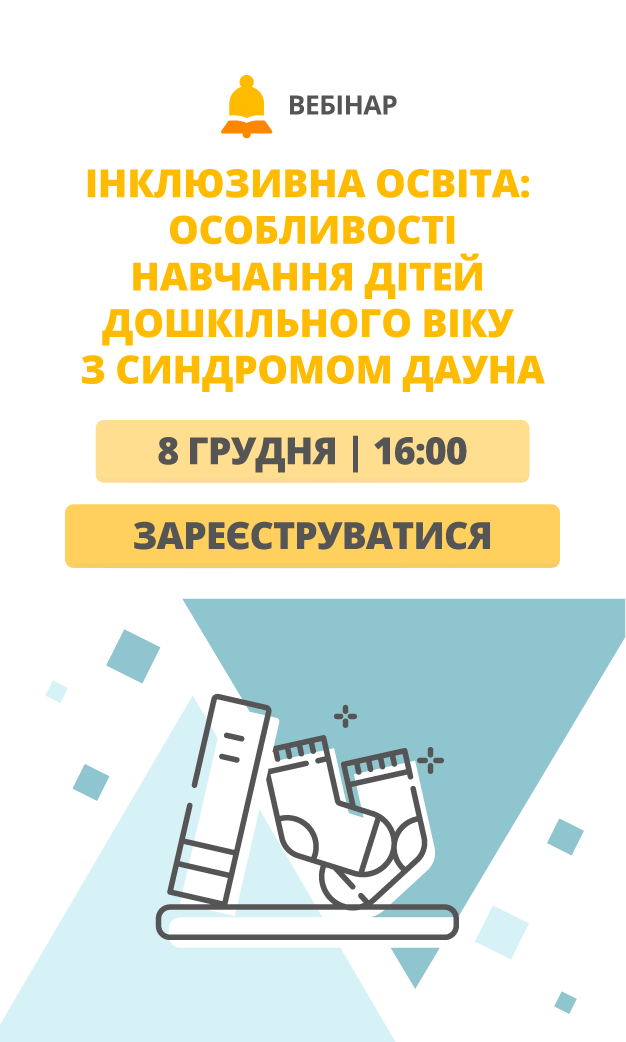

про публікацію авторської розробки
Додати розробку
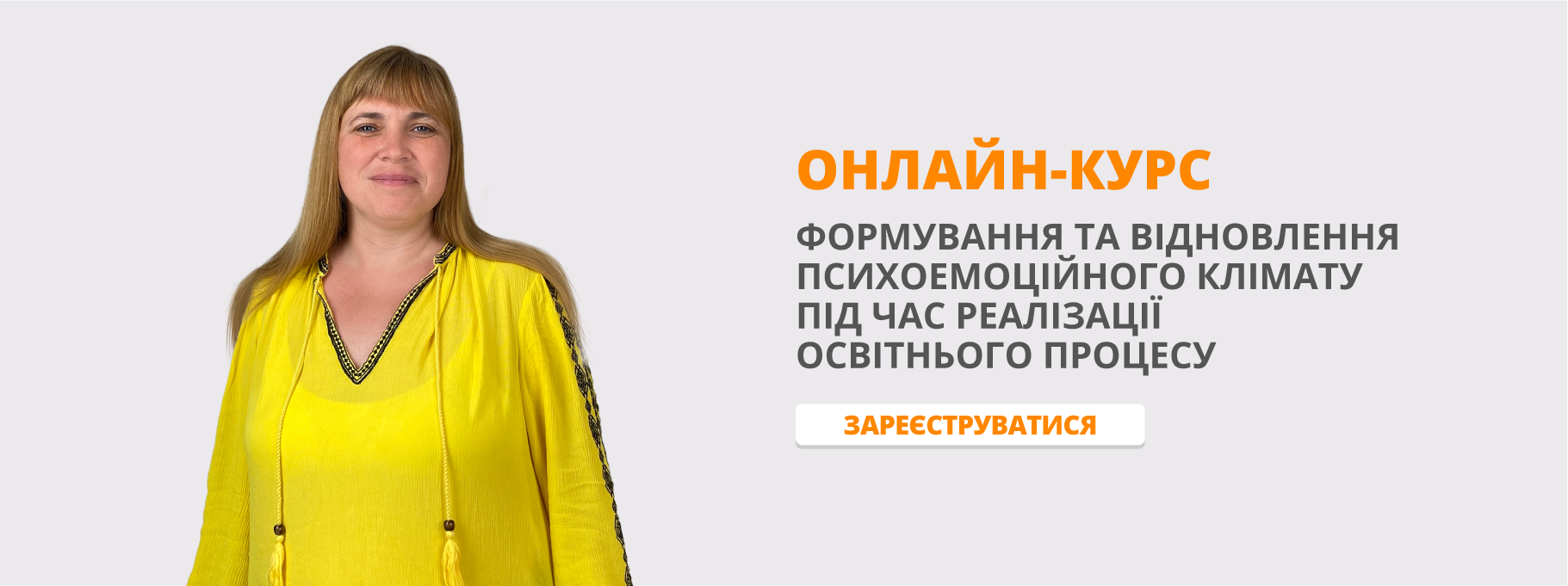
-

Цилюрик Вікторія Володимирівна
29.11.2021 в 19:58
Загальна:
5.0
Структурованість
5.0
Оригінальність викладу
5.0
Відповідність темі
5.0
-

Sanko Yaroslav
15.09.2020 в 12:23
p.8 mach to much
the best
Загальна:
5.0
Структурованість
5.0
Оригінальність викладу
5.0
Відповідність темі
5.0
-

Якубович Оксана Павлівна
20.10.2019 в 18:27
Загальна:
5.0
Структурованість
5.0
Оригінальність викладу
5.0
Відповідність темі
5.0
-
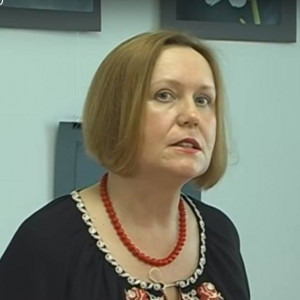
Михайленко Лариса Анатоліївна
10.05.2019 в 17:21
Well done! Thanks a lot)
Загальна:
5.0
Структурованість
5.0
Оригінальність викладу
5.0
Відповідність темі
5.0
-
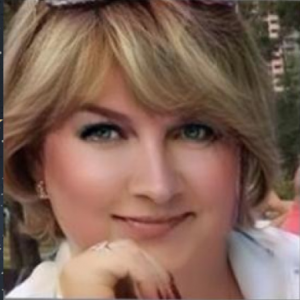
КОЛОЯНОВА ОКСАНА ЮРІЇВНА
12.12.2018 в 13:19
Щиро дякую))))))))))))))
Загальна:
5.0
Структурованість
5.0
Оригінальність викладу
5.0
Відповідність темі
5.0
Показати ще 2 відгука